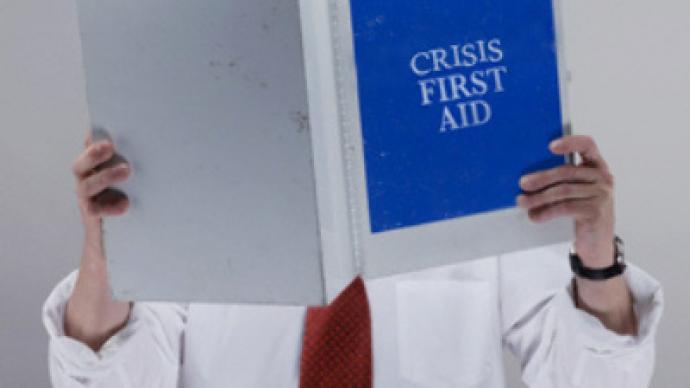Kremlin comes clean in crisis

With governments around the globe being taken to task over their anti-crisis measures, officials are showing an unprecedented willingness to debate their economic stimulus initiatives in the public spotlight.
Going against the grain of government opaqueness, President Dmitry Medvedev, who entered office with bold promises of tackling Russia’s culture of “legal nihilism” and rampant corruption, seems determined to make his anti-crisis initiatives a matter of public discourse and record.
The winds of change started to swirl in December as the Kremlin announced a special hot line for anti-crisis proposals for organizations and citizens.
Sergey Mironov, speaker of the upper chamber, told reporters that the hot line telephone number ( 8-495-692-58-72 ) is available for anybody who would like to report information and share their ideas on the crisis.
Twice a month, all of the comments will be delivered to government officials who will painstakingly analyze the collected information.
Mironov assured that the information that the officials gather would be passed down the chain of command.
“We will be in contact with governors,” Mironov added. “After all, we are all a regional chamber and for us it is extremely important what happens.”
This public debate on the crisis seems to be exactly what the people want.
“People expect the state authorities to tell the truth about the situation [in the economy]… how long the crisis will last and most important – what the authorities are going to do to help the people,” says Valery Fyodorov, the head of VCIOM, a public opinion polling agency.
In January, Medvedev, who personifies the new-age trend of gadget-savvy leaders, unveiled his own video blog (at www.kremlin.ru) where anybody can read about the president’s initiatives, daily activities and ideas. The site, which allows people to post comments, reportedly registers many thousands of hits per week.
Dirty Laundry, Public Cleaning
This month, during a meeting of regional representatives in the Kremlin, President Medvedev said he looked forward to having the government’s economic policies criticized, while telling regional officials to be very attentive to social issues that need addressed.
“It’s not surprising there should be criticism of the course being undertaken. But of course you have to put forward arguments if you consider this correct,” Medvedev said.
“It’s obvious that discussion of matters that lie in your area of responsibility… is quite acceptable and even necessary. I want to underline the urgent importance of communication with various social groups. I want you to understand that today we live in a new reality,” the president added.
The president himself has had many media appearances, many of them televised, where he speaks directly to the people about what his government is doing to offset the global economic crisis.
But the openness does not stop at the president. On Thursday, it was announced that Prime Minister Vladimir Putin will deliver an anti-crisis report to the State Duma on April 2.
The Duma address is unprecedented, but is in line with Medvedev’s decision to amend the Russian Constitution to provide for such timely reports by the prime minister.
Russia is currently facing one of its most challenging economic periods at least since the collapse of the ruble in 1998. Like most other major economies, Russia is suffering from a decline in production, a rise in unemployment and a general sense of fear and frustration from a growing number of people from all social classes. This presents governments around the world with the unenviable task of putting their economies in shape before the social thermometer reaches undesirable levels.
In the meantime, Moscow continues to publicly present its anti-crisis initiatives for public consumption.
In a televised meeting on Thursday, Putin told his cabinet that Russia would run a budget deficit of 3 trillion rubles ($87 billion dollars) or 7.4 percent of the country’s gross domestic product (GDP).
The prime minister ruled out the need for printing more money to cover the deficit, which he said presented no dangers to the economy. He also resisted the idea of waiting for a rise in oil prices to solve Russia’s crisis.
“There’s no point hoping for high oil revenues in the near future that would solve all of our problems in one shot,” Putin said.
Robert Bridge, RT












